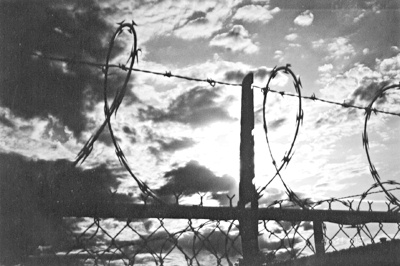All Nonfiction
- Bullying
- Books
- Academic
- Author Interviews
- Celebrity interviews
- College Articles
- College Essays
- Educator of the Year
- Heroes
- Interviews
- Memoir
- Personal Experience
- Sports
- Travel & Culture
All Opinions
- Bullying
- Current Events / Politics
- Discrimination
- Drugs / Alcohol / Smoking
- Entertainment / Celebrities
- Environment
- Love / Relationships
- Movies / Music / TV
- Pop Culture / Trends
- School / College
- Social Issues / Civics
- Spirituality / Religion
- Sports / Hobbies
All Hot Topics
- Bullying
- Community Service
- Environment
- Health
- Letters to the Editor
- Pride & Prejudice
- What Matters
- Back
Summer Guide
- Program Links
- Program Reviews
- Back
College Guide
- College Links
- College Reviews
- College Essays
- College Articles
- Back
Privatization of Prisons - A Terrible System
When politicians claim that they are strict on crime, the populace cheers. Afterall, who wants to elect someone to office who is going to allow ruthless criminals to roam the streets? This mentality of extreme criminalization is dangerous, unfair, and corrupt. Something needs to be done about it.
According to the Corrections Project, since 1970 the amount of prisoners in America has risen from 280,000 to 2,400,000. In order to support this growth, the government has become dependent on private, for-profit prisons. These institutions rent out beds to the government. Since their creation in 1984, private prisons have grown to ten percent of the American system, the equivalent of 240,000 people.
In order to turn a profit, private prisons are known to cut corners with devastating results. According to the American Federation of State, County and Municipal Employees (AFSCME), “Private prisons routinely experience more inmate escapes and higher rates of violence due to chronically lax security and poorly trained, minimally paid staff.” In addition, these prisons have been documented to underfeed inmates and to have poor health care systems. The release of unhealthy people into society is a drain on the American health care system. Thus, taxpayers are paying once for private prisons to keep their prisoners healthy, and again for healthcare when they are released, all so that private prisons can turn a profit.
Private prisons profit from keeping many prisoners for as long as possible. According to The Washington Post, “many state, county and local governments that outsource prisons to private corporations frequently sign contracts that guarantee a certain occupancy rate in prison beds. If governments don’t meet those quotas, the contracts require them to pay the firms for unoccupied beds.” Since the government has to pay for the beds regardless of whether or not they are filled, there is motivation to fill the quotas so that they are not wasting money. In addition, whereas the purpose of the justice system is to rehabilitate people so that they are ready to go back into society, private prisons are motivated to do the opposite. Low rates of recidivism are bad for private prisons. With fewer potential criminals out in society, private prisons are set to make less money, and so they do what they can to avoid it.
In order to fill beds, the government has increased incarceration rates. With violent crime decreasing, the government has turned to use jail as punishment for a wider variety of crimes. Currently, 50% of inmates are in jail for drug related crimes, with an additional 10% incarcerated for immigration related crimes. These people are in jail for nonviolent crime, but in prison, they are living in a very negative atmosphere. Between guard brutality and close proximity to violent criminals, nonviolent criminals are being placed into an environment in which they are likely to be abused. For this reason, incarcerated prisoners who committed minor crimes may be leaving prisons more likely to commit dangerous crime than before going to prison as a result of being hardened by the harsh prison environment.
Why do we the people allow this system to strive and grow? Private prisons are a leach on society. They drain tax dollars and provide a subpar service in return. They release unhealthy men and women into society and have high rates of escapes and guard brutality. Due to to the way the system is structured, these institutions also give the government incentive to incarcerate more people, regardless of the crimes being committed. If we want to improve the justice system, a good place to start would be by ending the privatization of prisons. Call or write to your congressman or woman and tell them that you won’t stand for the continuing existence of this terrible system.

Similar Articles
JOIN THE DISCUSSION
This article has 0 comments.
